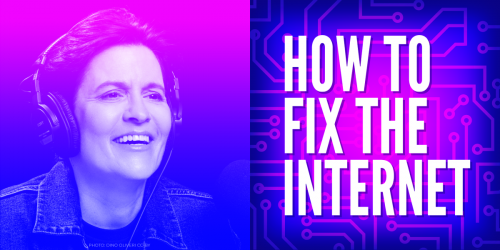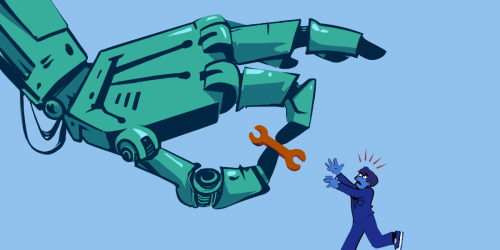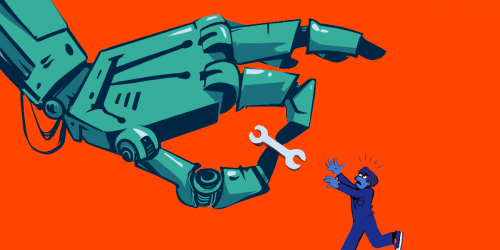At EFF, we believe that tech rights are worker’s rights. Since the pandemic, workers of all kinds have been subjected to increasingly invasive forms of bossware. These are the “algorithmic management” tools that surveil workers on and off the job, often running on devices that (nominally) belong to workers, hijacking our phones and laptops. On the job, digital technology can become both a system of ubiquitous surveillance and a means of total control.
Enter the EU’s Platform Work Directive (PWD). The PWD was finalized in 2024, and every EU member state will have to implement (“transpose”) it by 2026. The PWD contains far-reaching measures to protect workers from abuse, wage theft, and other unfair working conditions.
But the PWD isn’t self-enforcing! Over the decades that EFF has fought for user rights, we’ve proved that having a legal right on paper isn’t the same as having that right in the real world. And workers are rarely positioned to take on their bosses in court or at a regulatory body. To do that, they need advocates.
That’s where unions come in. Unions are well-positioned to defend their members – and all workers (EFF employees are proudly organized under the International Federation of Professional and Technical Engineers).
The European Trade Union Confederation has just published “Negotiating the Algorithm,” a visionary – but detailed and down-to-earth – manual for unions seeking to leverage the PWD to protect and advance workers’ interests in Europe.
The report notes the alarming growth of algorithmic management, with 79% of European firms employing some form of bossware. Report author Ben Wray enumerates many of the harms of algorithmic management, such as “algorithmic wage discrimination,” where each worker is offered a different payscale based on surveillance data that is used to infer how economically desperate they are.
Algorithmic management tools can also be used for wage theft, for example, by systematically undercounting the distances traveled by delivery drivers or riders. These tools can also subject workers to danger by penalizing workers who deviate from prescribed tasks (for example, when riders are downranked for taking an alternate route to avoid a traffic accident).
Gig workers live under the constant threat of being “deactivated” (kicked off the app) and feel pressure to do unpaid work for clients who can threaten their livelihoods with one-star reviews. Workers also face automated de-activation: a whole host of “anti-fraud” tripwires can see workers de-activated without appeal. These risks do not befall all workers equally: Black and brown workers face a disproportionate risk of de-activation when they fail facial recognition checks meant to prevent workers from sharing an account (facial recognition systems make more errors when dealing with darker skin tones).
Algorithmic management is typically accompanied by a raft of cost-cutting measures, and workers under algorithmic management often find that their employer’s human resources department has been replaced with chatbots, web-forms, and seemingly unattended email boxes. When algorithmic management goes wrong, workers struggle to reach a human being who can hear their appeal.
For these reasons and more, the ETUC believes that unions need to invest in technical capacity to protect workers’ interests in the age of algorithmic management.
The report sets out many technological activities that unions can get involved with. At the most basic level, unions can invest in developing analytical capabilities, so that when they request logs from algorithmic management systems as part of a labor dispute, they can independently analyze those files.
But that’s just table-stakes. Unions should also consider investing in “counter apps” that help workers. There are workers that act as an external check on employers’ automation, like the UberCheats app, which double-checked the mileage that Uber drivers were paid for. There are apps that enable gig workers to collectively refuse lowball offers, raising the prevailing wage for all the workers in a region, such as the Brazilian StopClub app. Indonesian gig riders have a wide range of “tuyul” apps that let them modify the functionality of their dispatch apps. We love this kind of “adversarial interoperability.” Any time the users of technology get to decide how it works, we celebrate. And in the US, this sort of tech-enabled collective action by workers is likely to be shielded from antitrust liability even if the workers involved are classified as independent contractors.
Developing in-house tech teams also gives unions the know-how to develop the tools for organizers and workers to coordinate their efforts to protect workers. The report acknowledges that this is a lot of tech work to ask individual unions to fund, and it moots the possibility of unions forming cooperative ventures to do this work for the unions in the co-op. At EFF, we regularly hear from skilled people who want to become public interest technologists, and we bet there’d be plenty of people who’d jump at the chance to do this work.
The new Platform Work Directive gives workers and their representatives the right to challenge automated decision-making, to peer inside the algorithms used to dispatch and pay workers, to speak to a responsible human about disputes, and to have their privacy and other fundamental rights protected on the job. It represents a big step forward for workers’ rights in the digital age.
But as the European Trade Union Confederation’s report reminds us, these rights are only as good as workers’ ability to claim them. After 35 years of standing up for people’s digital rights, we couldn’t agree more.













